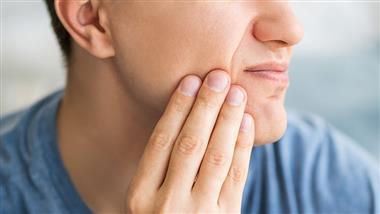
"Did you know that while you're sleeping at night, your jaw can exert up to 250 pounds of force? 1 You may be unaware of it, but there's a chance you're unconsciously grinding your teeth as you slumber. Called bruxism, this is when a person involuntarily clenches their jaw and grinds and gnashes their teeth. According to estimates, 8.6% of adults currently experience this problem, 2 and it could also occur during childhood. 3"
"*Most people don't even realize they have bruxism until the symptoms manifest - Mild teeth grinding or clenching is usually harmless. However, if it occurs frequently or becomes severe, it leads to jaw pain, tightness, fatigue, or recurring headaches. Your teeth are damaged as well, causing them to crack, loosen, or even fall out. Eventually, these symptoms become too severe to ignore. 5"
Bruxism is involuntary clenching and grinding of the jaw that can exert up to 250 pounds of force during sleep. An estimated 8.6% of adults experience bruxism, and it can also occur in children. Grinding appears as awake bruxism, linked to stress or concentration, and as sleep bruxism, a sleep-related movement disorder that is more destructive. Frequent or severe bruxism causes jaw pain, tightness, fatigue, recurring headaches, and progressive tooth damage such as cracks, loosening, or loss. Common triggers include sleep disorders (sleep apnea, sleep paralysis, restless leg syndrome), stress, smoking, caffeine, alcohol, certain medications, and genetics. Noninvasive, low-cost approaches can stop teeth grinding.
Read at Natural Health News
Unable to calculate read time
Collection
[
|
...
]